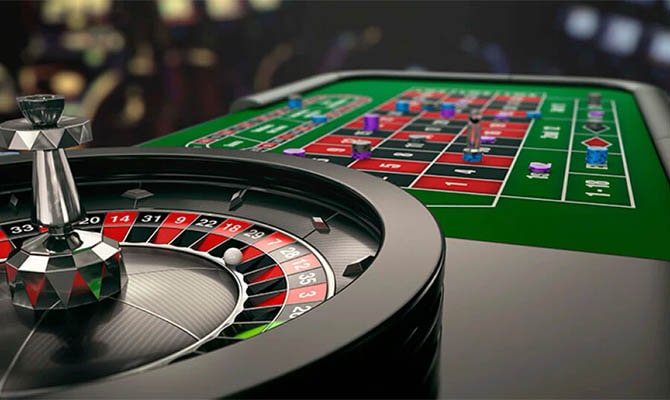In the vibrant world of gaming, gambling house games have long seized the attention of gamblers around the planet. These games, spanning classic table options like poker to the rotating reels of slots, offer an fascinating combination of luck and strategy. While chance undeniably plays a important role in shaping outcomes, the importance of expertise in many gambling games cannot be neglected. Comprehending how expertise affects the experience can improve not only a gambler’s experience but also their odds of winning.
As we explore further the inner workings of gambling activities, it becomes evident that some require a robust grounding of wisdom and tactics. Activities like blackjack require more than simple fortune; they require critical thinking, emotional insight, and calculated decision-making. In comparison, other activities, such as the roulette wheel and slots, are primarily driven by chance, allowing gamblers to rely solely on luck. This difference raises intriguing questions about what truly drives success in the domain of gambling and how a gambler’s abilities can tilt the balance in their advantage.
Comprehending Expertise versus Luck in Casino Activities
In the realm of casino games, the discussion between skill and luck is a enduring one. Many games are often divided into two categories: those that rely predominantly on chance, such as slot machines and the wheel, and those where skill plays a significant role, like the game of poker and 21. The distinction is crucial because it affects not only gameplay strategies but also the approach players adopt when engaging with these games. While luck can play a critical role in the immediate, skilled players can boost their odds of winning over the long run in skill-based games.
Skill-based games, particularly poker, require players to understand probability, psychology, and game strategies. A seasoned poker player can read rivals, make calculated bets, and understand when to fold, all of which can lead to greater favorable outcomes. On the other hand, in games that are purely chance-driven, no amount of skill can alter the odds. This implies that although a player may win big in one session, their success may frequently be subject to the whims of random outcomes rather than any tactical expertise.
In the end, both skill and luck coexist in the world of casino games, creating a dynamic environment for players. Although games of chance can provide excitement and instant gratification, mastery and strategy in skill-based games offer a deeper level of engagement for those prepared to dedicate time in refining their craft. This interplay between skill and luck defines the journeys of players and shapes their connection with the games they select to play.
The Impact of Ability on Game Outcomes
In the world of casino games, skill plays a key role in determining the outcomes, especially in games where tactics and decision-making are paramount. For instance, in poker, competitors must assess opponents, calculate probabilities, and make calculated bets to maximize their odds of succeeding. Unlike activities that rely purely on luck, such as slot machines or roulette, this game demands an understanding of both the game mechanics and the behavior of other participants, making skill a vital component of success.
Other strategy-based games, like blackjack, also highlight the significance of player skill. https://uu88.london/ Understanding of basic tactics, card counting, and when to hit or stand can dramatically influence the house edge. UU88 A skilled 21 player can reduce this edge and improve their chances of winning significantly. This contrasts sharply with activities that do not permit for such strategic play, showcasing how the level of skill influences the possibility for positive outcomes.
Moreover, even within games deemed primarily chance-driven, like the game of craps, the choices made by players can influence their overall success. Choosing the optimal bets, comprehending the odds of different outcomes, and managing one’s bankroll are essential aspects that can enhance a participant’s experience and results. Thus, while chance remains a component in gambling, ability can significantly influence how effectively participants navigate these settings, leading to more favorable outcomes.
Tactics for Expert Play in Casinos

To thrive in gambling games, players must develop a robust grasp of the regulations and odds involved in every game. This essential knowledge enables individuals to make educated choices, especially in skill-based games like Texas Hold’em and 21. Getting familiar oneself with game tactics, such as card counting in 21 or identifying betting patterns in Texas Hold’em, can significantly enhance a player’s odds of success. Rehearsing these tactics through simulations or low-risk games allows players to hone their skills without risking substantial amounts of cash at risk.
One more key strategy is bankroll management. Players should establish a budget before going into the casino and adhere to it faithfully. This involves deciding how much they are prepared to lose and setting limits on how much they will wager in every gaming session. By keeping a disciplined approach to gambling, players can maintain their play and reduce the chance of significant losses. Additionally, taking time-outs can help maintain a clear head and prevent rash decisions that often lead to unfavorable outcomes.
Finally, emotional control is crucial in the high-stakes environment of a casino. Players must be adept at controlling their emotions, particularly during times of winning or defeats runs. Staying focused and not letting emotions dictate gameplay can lead to more logical decisions. Methods such as taking deep breaths or walking away from the gaming table during heated moments can help maintain calmness. By cultivating a steady state of mind, players can approach casino games with assurance and skill, ultimately improving their complete gaming experience and outcomes.